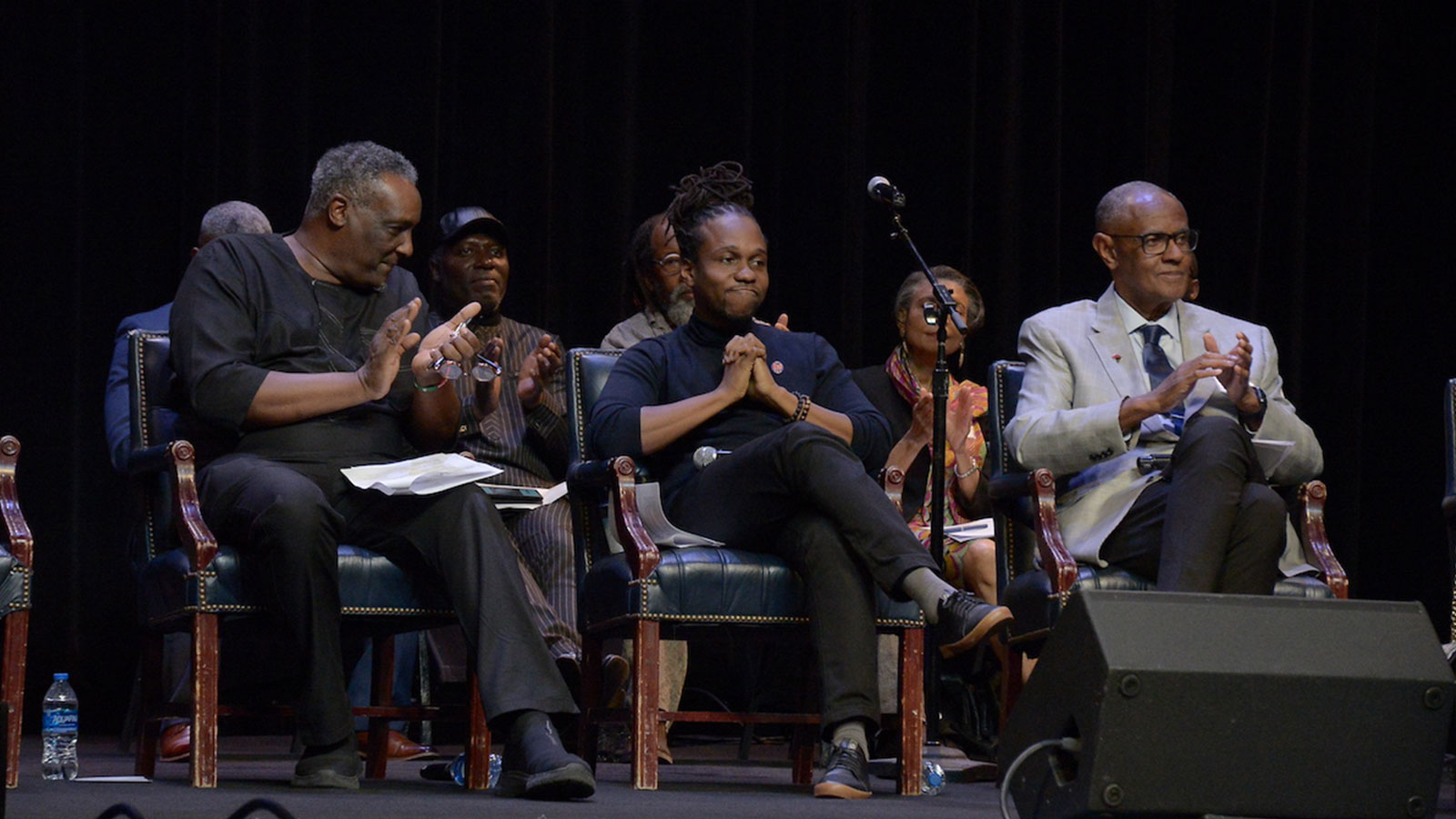By Sam P.K. Collins, The Washington Informer —
The Nov. 8 midterm election red wave predicted by politicos didn’t happen after all.
Instead, local and state-level voter mobilization efforts successfully secured substantial victories for Democrats, including women and people of color throughout the United States.
While still waiting for some congressional race results to be decided, a cadre of Black intellectuals, community organizers, political watchdogs and clergy gathered at Howard University to analyze the results’ impact on Black America.
Panelists agreed that the election results are a cause for celebration. Still, they recommended that Black voters unite and leverage their political power to successfully advance an agenda now while the Democrats control the White House and the Senate.
The town hall was organized by the Institute of the Black World 21st Century. The theme: “The 2022 Midterm Elections: Impact on the State of Black America and the Pan-African World,” included topics that ran the gamut, from voter mobilization and civic education, anti-Black immigrant sentiments, neoliberalism and imperialism, local and state-level organizing, engaging youth, and preventing the over-policing of communities.
Dr. Greg Carr, a panelist and associate professor of Afro-American Studies at Howard University, indicted past Democratic and Republican presidents for foreign policy decisions that destabilized Africa. He also called to task elected officials in the U.S. and abroad who support policies that negatively impact Black working-class people.
In his analysis, Carr highlighted the National Black Political Convention in Gary, Ind. in 1972 and Rev. Jesse Jackson’s subsequent presidential run as moments when Black people should have permanently consolidated their power.
“We don’t have to beg nobody. We organize,” Carr said.
“What scared the hell out of the Democratic Party is that we were going to make an independent Black party. The tactical error was that the whole apparatus was turned over to the Democratic Party,” Carr asserted.
Other panelists at HU’s Cramton Auditorium on Thursday evening included: Hilary Shelton, NAACP national advisor of policy and governance; Melanie Campbell, president of the National Coalition on Black Civic Participation; Tamika Mallory, co-founder of Until Freedom; Pastor Michael McBride, director of the LIVE FREE Campaign; Janice Mathis, Esq., executive director of the National Council of Negro Women; Melvin Foote, president of the Constituency for Africa, Dr. E. Faye Williams, national chair and CEO emeritus of the National Congress of Black Women; Maurice Mitchell, director of the Working Families Party; and the Rev. Sheridan Todd Yeary, former senior vice president of the National Rainbow/ PUSH Coalition.
Journalist Roland Martin and Dr. Julianne Malvueaux, president emeritus of Bennett College for Women, moderated the two-hour discussion, while Dr. Ron Daniels, president of the Institute of the Black World 21st Century, provided commentary that channeled the energy of esteemed ancestors Dr. Patricia Newton, Dr. Frances Cress Welsing, and John Henrik Clarke, among several others.
As one of the youngest panelists, Mallory served as a bridge between the elders who understand the importance of voting and many of her contemporaries who question electoral politics. Part of her organizing strategy, Mallory said, involves rallying for change among the grassroots and raising funds for local and state-level causes.
“It comes out sometimes as people saying they don’t want to vote, but they are really saying that they want something different,” Mallory said. “I take on the role of explaining the power in our vote but understanding that the vote alone isn’t a tool. There must be something in this moment that speaks to who we are as a people today.”
Dr. Williams didn’t mince words as she called for unity and coalition building like what she saw decades ago. In her comments, she evoked the legacy of her friend, the late comedian and activist Dick Gregory. She also lamented Black people’s waning support for Kyrie Irving, a professional basketball player who’s come under fire recently for posting a movie on his social media page that Jewish leaders have described as antisemetic.
“We need to return to that unity,” Williams said.
“We’ve got to stop saying that young people aren’t doing anything. The young people showed up. It’s not just about voting power. The most important thing is to form coalitions and work with each other,” Williams added.
Mitchell echoed Williams’ sentiments in his comments that elicited accolades from James Early, a cultural educator who, with other featured guests, delivered responses to the presentations. Three Howard University students were included among them.
Throughout the evening, Mitchell criticized the Democratic Party for shaping economic policies that increased the wealth gap. As an organizer, he advocated for the need to build outside of the two-party system and leverage power so that a multi-racial conglomerate of working-class people, with Black people at the base, can effectively shape policy.
“Neoliberalism is not an economic strategy that’s good for Black people,’ Mitchell said.
“We can’t join the elite white folks and turn our backs on working-class Black people. We need to have an international, gender, class and race analysis. We need to develop an independent Black agenda so we can join coalitions from a standpoint of power.”
Video
Sam P.K. Collins has more than a decade of experience as a journalist, columnist and organizer. Sam, a millennial and former editor of WI Bridge, covers education, police brutality, politics, and other…
Source: The Washington Informer
Featured image: From left: Dr. Greg Carr, Maurice Mitchell and Melvin Foote (Roy Lewis/The Washington Informer)















